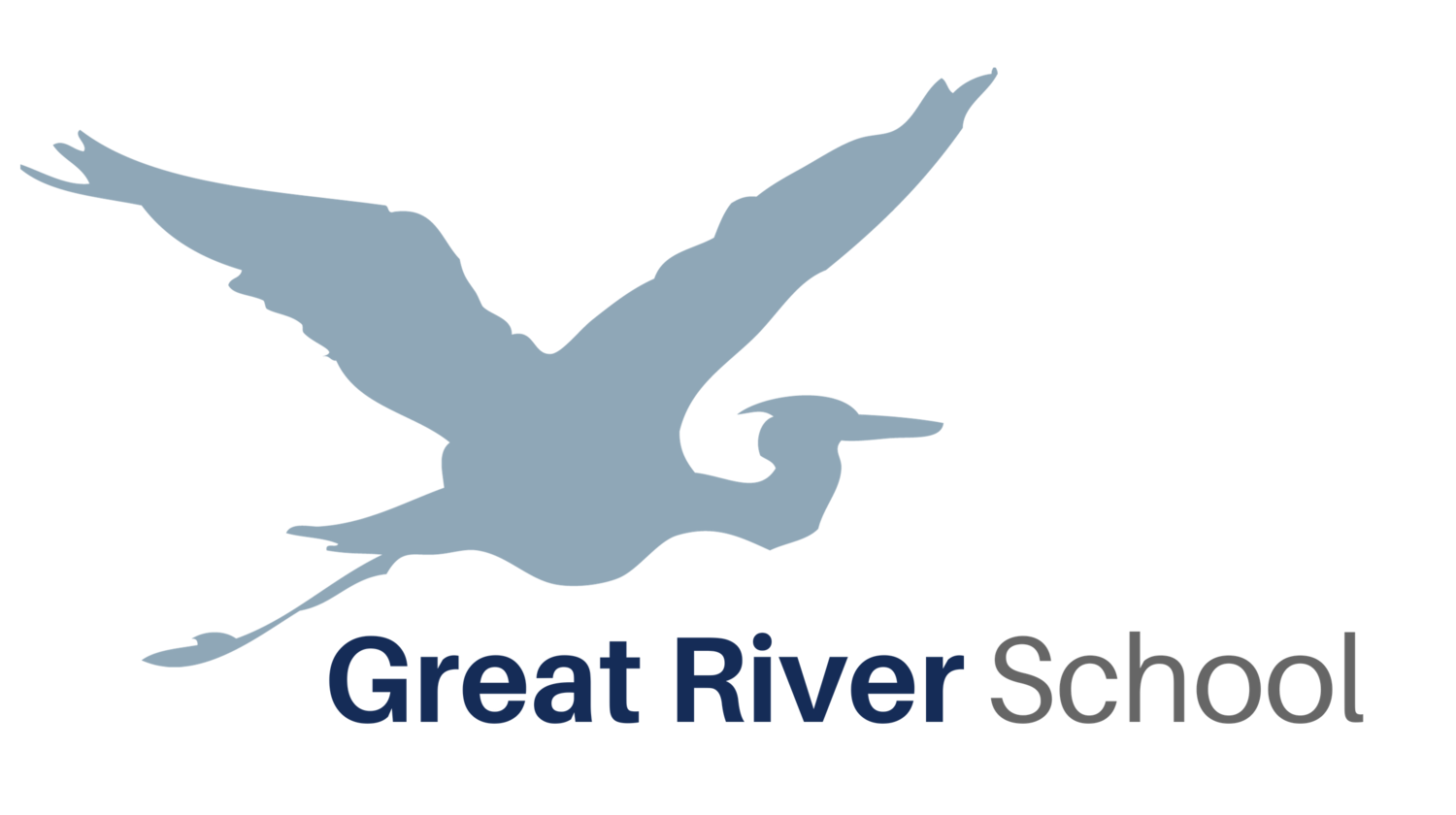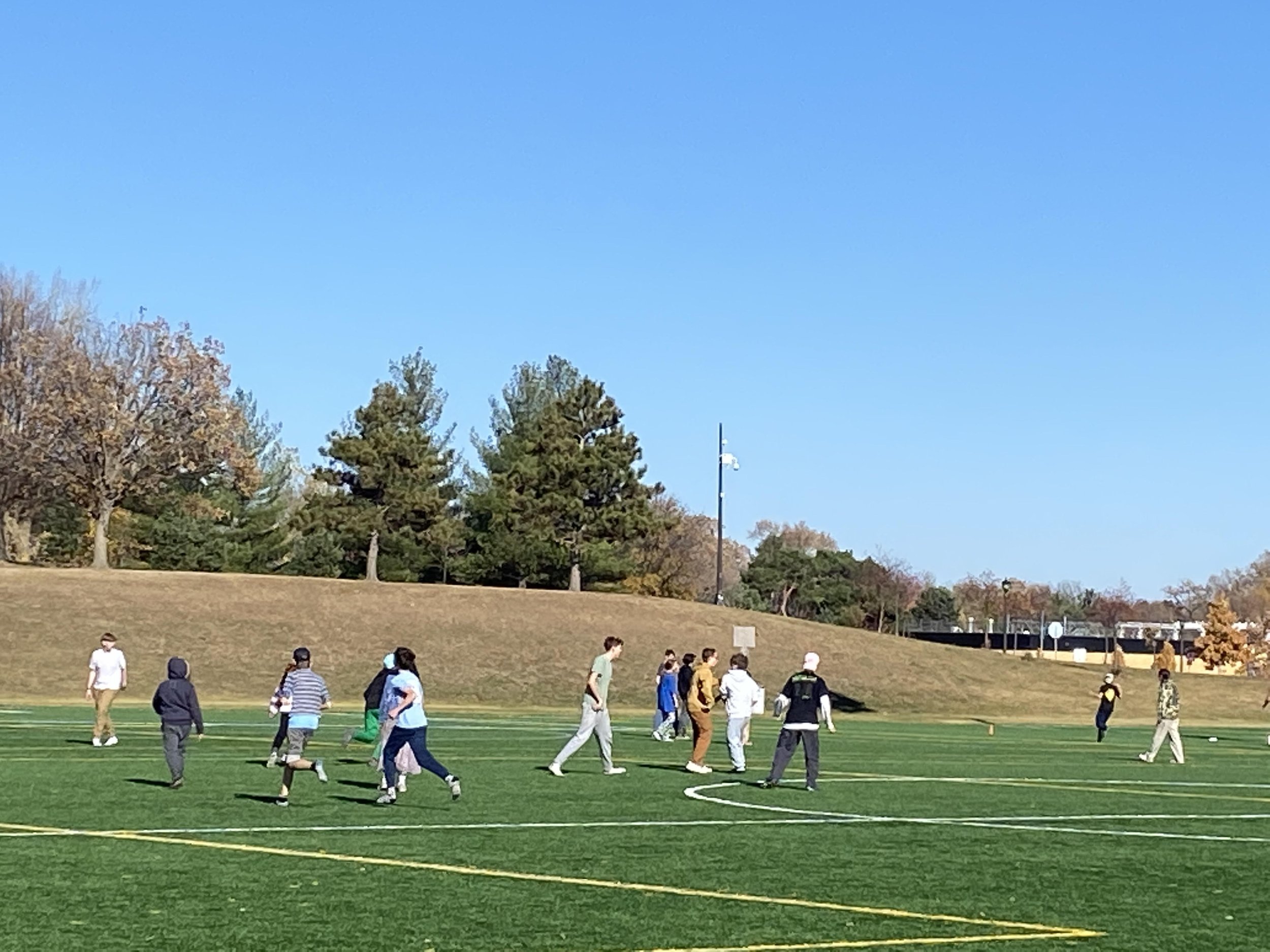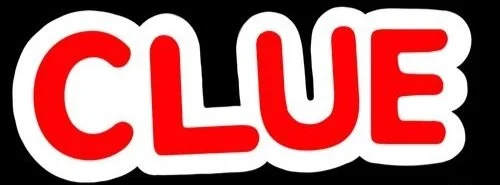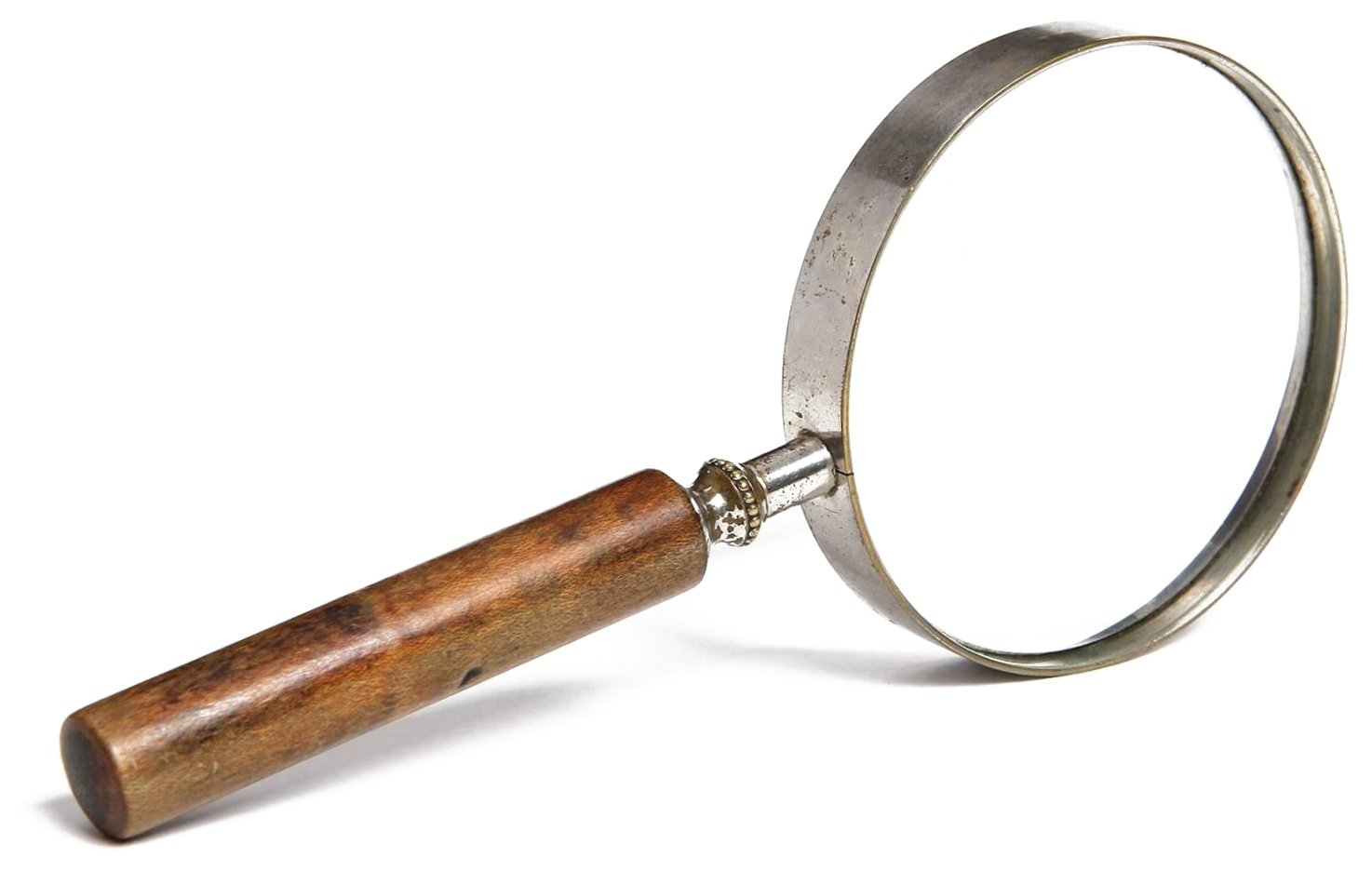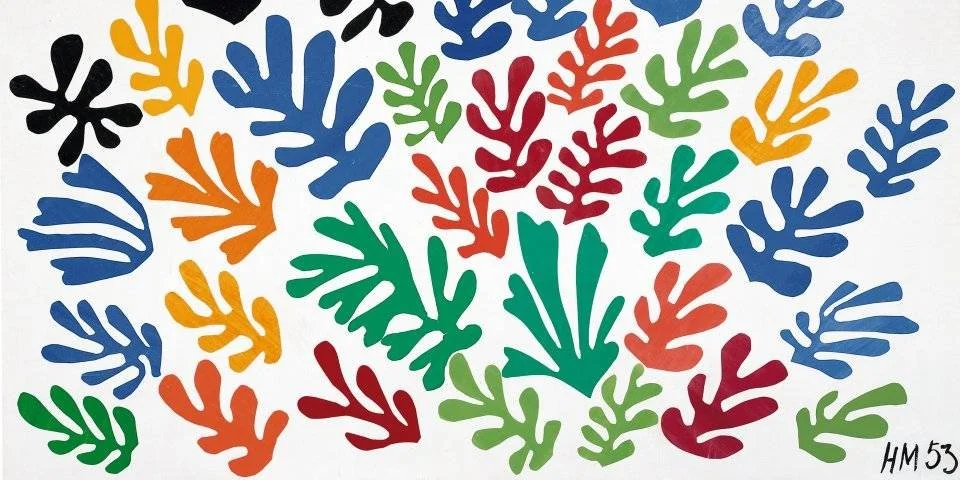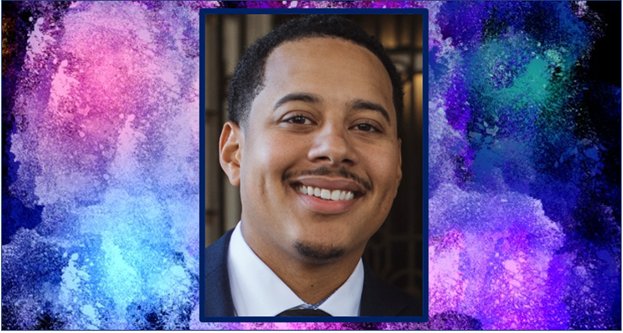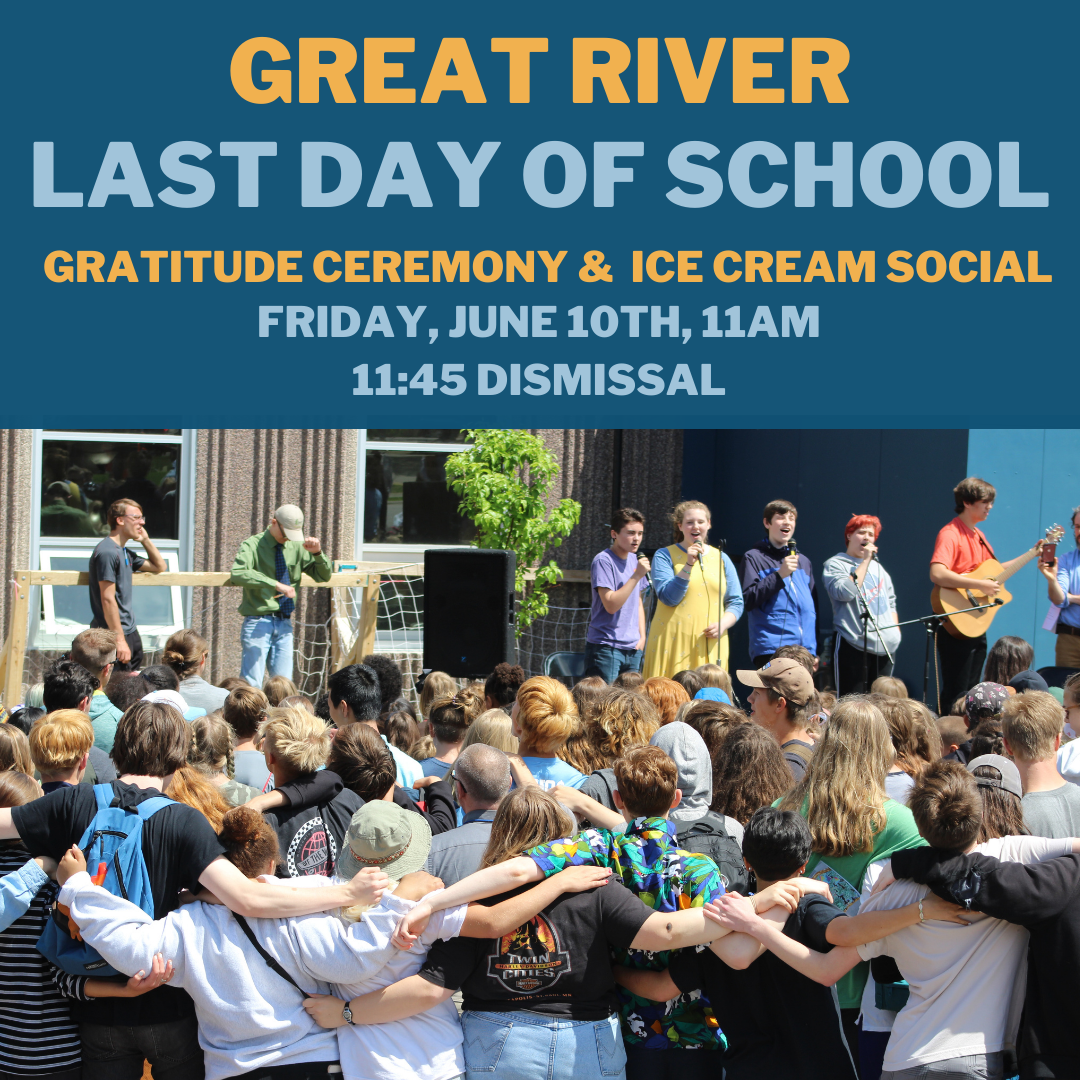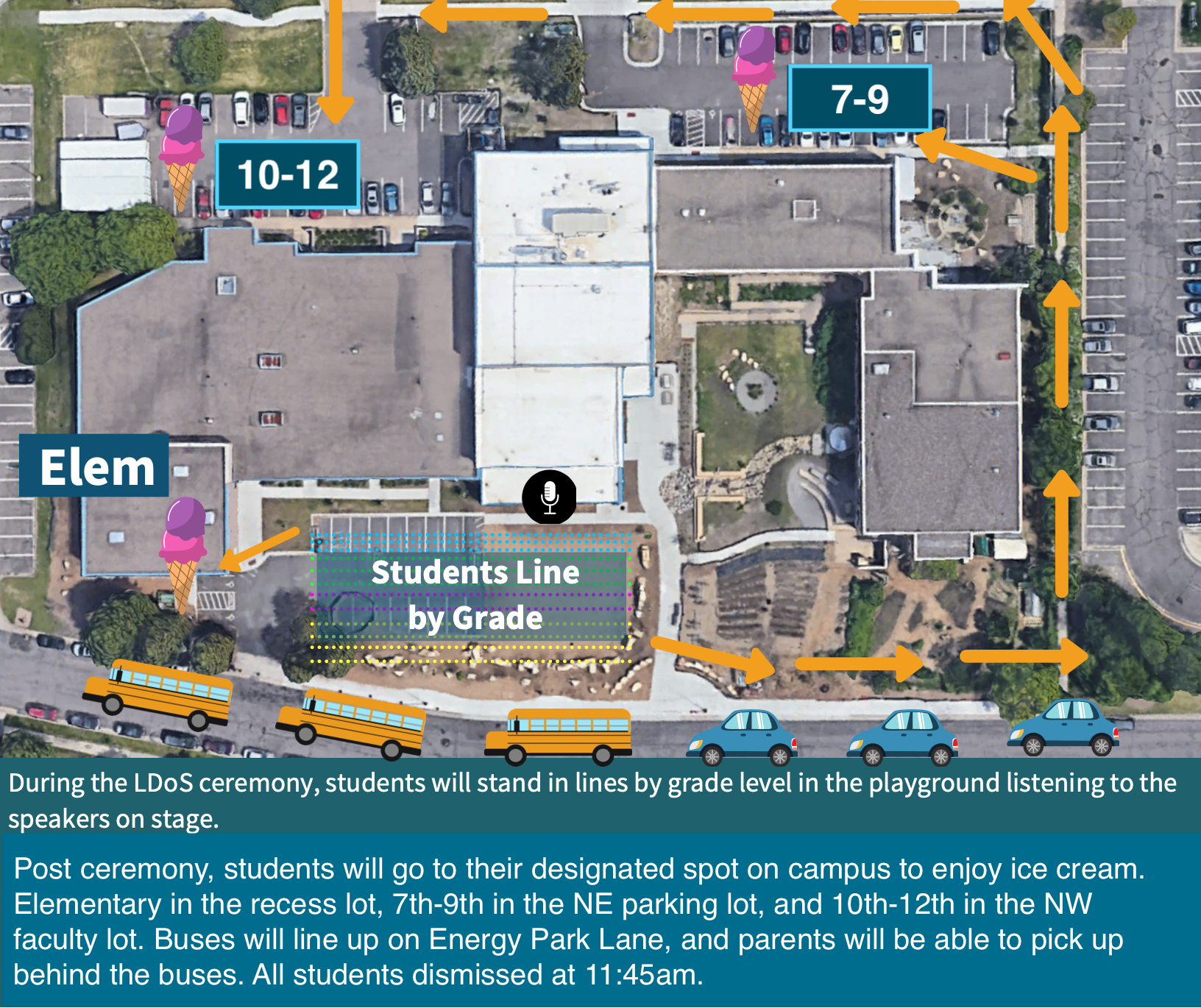Creativity, Activity, and Service, or “CAS”, is part of the core of the philosophy of the International Baccalaureate Program. Starting just as as Diploma Program (11th-12th grade) concept, the CAS program now weaves through the entire adolescent program. The goal of CAS is to contribute to the personal and interpersonal development of the students. In the 7-10th grades, students can choose from a variety of different activities that allow them to stretch their creative muscles (creativity), their anatomical muscles (activity), or work in service to the school community (service). Highlights so far include ultimate frisbee, needle felting, chicken coop construction, and preparing for Harvest Fest.
For 11th and 12th Grade students, CAS is generally a self-directed and off-campus activity. With support from IB Coordinator Lindsey Weaver and CAS Coordinator Mari Ruddy, students take on learning experiences in the community at organizations such as the Best Buy Teen Tech Center, the Hamline-Midway Library, the Bee Lab @ the U, and the Midway YMCA. Some students engage in their CAS work at Great River assisting the Pottery Studio, the Performance Space, and working to plan Wellness Activities at GRS.
Photos:
CAS 4: Junior engaging in service opportunity (Photo Credit: Lisa Steinman)
IMG_1837: Clay Magnet Making creative opportunity (Photo Credit: Laura Machacek)
CAS Ultimate: Ultimate Frisbee activity (Photo Credit: Scott Alslaben)
IMG_5788: Chicken Coop construction crew service opportunity (Photo Credit: Nick Beermann)
GRS Theatre Presents "Clue" , Nov. 18 & 19, 2022
The cast and crew of Clue have been hard at work preparing an excellent show just for you! Only a few more weeks to go and then it will be lights and action! Meet the cast below:
Ava (she/they), who is playing Mrs. Scarlet, is enjoying how close the cast has gotten and getting to work with all of them. She has also enjoyed being able to work with Sophie, the director, on this play. Right now they just got done memorizing all their lines, and are working on memorizing blocking. Ava is looking forward to having a full set and costumes, as well as full dress rehearsals.
Maya (she/her) is having fun getting to know the cast and collaborating with them. Working with Sophie is also a highlight for her, and she's very excited to see the whole show come together. Currently, she’s diving deep into her character Yvette's personality and motivations, working with the cast to understand their vibe.
Greta (they/them) is working with the light crew, and is finding the making of the cues to be very fun. “I'm looking forward to doing the shows live'' they said, “those will be chaotic, but fun.” Right now, they’re working on reworking lighting cues and making new ones.
Hayden (any pronouns) is playing The Cook, and is also enjoying getting to know the cast.“The cast is very friendly, I'm very happy I get to work with them.” They said, and “Everyone fits their roles so perfectly.” They are looking forward to opening night, as this is their first GRS production since J-term. Right now, she’s working on learning the flow of the production and the blocking.
Raie (no pronouns) is the costume crew manager, and is enjoying how much creativity is involved in the process. “The actors are great people, and have been really helpful.” Raie is looking forward to getting everything done, as well as the controlled chaos of tech week. “I like it when we have easy fixes for things…figuring out what we need is tough sometimes, but once we have it it's fun.”
While masks are not required, we strongly recommend you wear one for the safety and health of our cast and crew. There will be masks at the door if you need one.
Tickets are on sale on the GRS website right now! Visit www.greatriverschool.org/Clue to get your tickets today!
Beyond the classroom: Elementary Students Going out in the World
written by Nadine Wetzel, St. Croix guide
“The essence of independence is to be able to do something for one’s self. Adults work to finish a task, but the child works in order to grow and is working to create the adult, the person who is to be. Such experience is not just play, it is the work they must do in order to grow up.”
~ Dr. Maria Montessori
In guiding children to make choices in the classroom, I often remind them that their Daily Math, journal prompt or follow-up work is “their responsibility, the work they are doing to build their brain.” Even if they enjoy the lesson or enjoy writing, they still often need reminders to attend to this academic work. Rarely is this the case if a student or group of students has chosen to undertake the work of planning a “Going Out.” We often say “it's the process that matters,” an adage that perfectly fits “Going Out.” Students may need to get a library book they’ve requested, ingredients for food they want to make, learn about a new class pet or observe animals at Como Zoo and none of this can be accomplished within the walls of our school. So they MUST venture outside, beyond our campus.
You’ve likely seen determination & motivation in your child when they really want something. This same drive is visible when children are planning their Going Out, only it is multiplied by the number of children who are involved and it becomes true “group work.” They write each other reminder notes and talk to parents at pick-up and drop-off to ensure their event happens. Upcoming events on the calendar are scrutinized. Will everyone be able to participate? If food is being prepared, ingredients are studied. Is it gluten-free? What is a substitute for the butter so our vegan classmate can also enjoy this? It is critical that everyone is included. Inevitably, unforeseen circumstances occur and students process their disappointment and move to Plan B (or C or D).
A significant part of my job is to ensure the health and safety of each child. Therefore, prior to the Going Out, I meet with students to review their transportation plan. Each student has a map and a highlighter. Estimating travel time becomes a topic of conversation. Here in St. Paul, students have expressed frustration at how long travel times are on the bus. Then we have a conversation about how great it is that public transportation exists or that particular Going Out couldn’t even happen and we also imagine what it's like to ONLY use public transportation. Sometimes biking is faster, one student pointed out. This work directly supports our goal of developing children who can safely explore their world. I also remind the students they are ambassadors for Great River; they’ll need to shake hands, make eye contact, hold doors and conduct themselves with Grace & Courtesy.
Students become acutely aware of their surroundings, an essential life skill. A working knowledge of directions, distances and street names is incredibly important. Remember, these children will soon be biking with friends and even driving independently! A Going Out truly has the appropriate amount of risk for elementary aged children.
I have the unique perspective of being both a parent and a guide of elementary aged children since 2007 so I’ve heard many stories about Going Out experiences and guided many students through their planning process. When reminiscing with former students, the stories often include a memory from a Going Out. Years later, they can still recount details about their interviews or the animal they observed or the duration of their errand. These students have gone on to plan long camping trips, prom, and gather materials to make appreciation gifts for graduating seniors and coaches. They learned to communicate respectfully with business people, handle setbacks with grace and creativity and enrich their communities.
Though I’ve never had the opportunity to chaperone a Going Out, I’ve heard that work that’s as challenging as it is rewarding. Please contact your child’s guide if you are interested in finding out more!
Welcome Robyn to the Kitchen!
Robyn joins the Nest
Robyn Weiss, an intern from The Good Acre VoCul Program, is testing the waters in the culinary world at GRS.
This month you will see a new friendly face in the kitchen! Robyn Weiss comes to GRS this month after completing a 10- week Vocational Culinary (VoCul) training program with The Good Acre and will be with us for 4 weeks as she completes the internship phase.
“Most of my life I have had a strong interest in working with the schools. I am excited to experience Great River School while making healthy meals for students!”
Robyn will be at GRS helping Mel and the kitchen crew with lunch and the Creative Expressions Culinary Arts class on Tuesday afternoon while she navigates her journey in the culinary arts. Robyn will be with us on Mondays, Wednesdays, and Fridays, and Tuesdays in the afternoon. Be sure to wave to Robyn and wish her well as she completes her program with The Good Acre.
VoCul, our Vocational Culinary Training program, aims to increase the amount of healthy, locally-sourced, scratch-cooked meals in various foodservice operations by training individuals seeking culinary careers. This 14-week vocational training program supports the workforce, entrepreneurial and institutional foodservice operations, and our regional farm economy.
Under the guidance of Chef Lachelle Cunningham, Jamal Hashi, and Jenny Breen, trainees learn about food safety (ServSafe certification included), nutrition, seasonality, large-batch scratch cooking, how to use industrial equipment, and more. The first ten weeks of the program consist of in-person lectures and labs in a commercial kitchen in St. Paul. An optional four-week internship follows at one of our partnering kitchens.
Stop by the kitchen during lunch to say Hi to Robyn if you see her!
Support GRS this Fall
Did you know that Great River is a non-profit institution and receives 87 cents for every dollar that district public schools receive? Donations from families help make up for this difference and provide the unique learning opportunities and life-changing experiences that define the Great River education.
Unique opportunities like Key Experiences, our urban farm, Montessori materials, bike shop, the Theater Intensive…donors help make it all possible!
Show your love for Great River by helping our school thrive! No amount is too big or too small—even $5 helps! greatriverschool.org/give
We are so glad to be part of the Great River community with you. Click to donate.
November 2022 Head of School Message
written by David Núñez, Interim Head of School
Dear GRS community,
I hope you all had a wonderful MEA break and fall break! As the weather has turned cold, we’ve definitely settled into the school year in a really positive way.
It’s been a Fall-and-a-half with planning and conducting our first Fall Key experiences since before the pandemic struck. Personally, I went on the Odyssey and on the Wolf Ridge trip and had a great time on both. One of my favorite memories from the first part of the year, in fact, was catching the upper elementary kids at the end of the zipline at Wolf Ridge - seeing the expressions of excitement, exhilaration, and joy on all their faces!
Also, Harvest Fest was on October 15th and it was delightful to see so many families come out for the event. Last year, I missed Harvest Fest because I was under COVID quarantine, but I found it was a delightful event this year and I’m so excited that it all came together - thanks to all who put so much work into making it happen!
It’s now the month of November and so, fittingly, this month I wanted to thank you all.
In a world still dealing with a sustained, long-term world-wide health emergency, it's remarkable to have watched this community over the past year rise up to keep each other safe. Thank you for all you do.
We have a dedicated staff who are going above and beyond everyday to serve this community. Thank you all for that. I do not think my job would be possible were it not for the talented and dedicated people I work with.
We have students who are not only working hard for themselves and their own growth, but for the growth of our whole community. I thank each and every one of you for that passion and perseverance.
Finally, I am thankful to continue to be a part of this wonderful community. Thanks to the Board and to the entire community for all the support you have offered me this past 16 months as Interim Head of School here at Great River.
Peace,
David
Meet our Great River Staff: Jordan Samejima
Jordan is new to Great River and in his role as Equity and Inclusion Facilitator. He has already implemented some new things as part of his role and has partnered with several student groups! He is looking forward to creating new programs to better serve the needs of our many families at Great River! Get to know Jordan!
Biography provided by Jordan Samejima, Equity and Inclusion Facilitator
I joined Great River over the summer as the schools first equity and inclusion facilitator and have learned a lot about the Great River community in a short amount of time. As the equity and inclusion facilitator I will work with staff, students, and families at every grade level. I believe that Great River does great work with students but we can always strive to be better and engage in more equitable systemic practices that lead to more positive outcomes for students from marginalized communities.
In my role as the equity and inclusion facilitator I will be a member of the leadership team and have the opportunity to create meaningful change here at Great River. I am in the process of developing an equity action plan in collaboration with Equity Alliance MN along with a committee group that consists of staff, students, and parent representatives.
I am excited about the opportunity here at Great River and I look forward to fostering relationships with the students, staff, and community members of Great River. I love equity related work and understand the impact it can have. I am always open to feedback, ideas, and more than willing to collaborate on equity related initiatives.
A little bit about me…
I grew up here in Minnesota and attended Augsburg College where I received my Bachelor’s degree in Psychology. I received my Masters in Educational Leadership from Saint Mary’s University. My wife and I reside in Robbinsdale with our 10 month old daughter Noemi and our dog Nori. In my free time I enjoy traveling, attending sporting events, concerts, and spending time with my family and friends. I’m looking forward to creating a different reality for our students here at Great River.
Odyssey Night Presentations, October 25, 2022



On October 25th, 7th and 8th grade students and families converged on the Lower Adolescent wing for a work share of their Odyssey Projects. In this culminating activity, students focused on some of the most interesting and engaging aspects of their odyssey experience. The project was an opportunity to work with their advisor to research an area of special interest with a focus on Minnesota and the Great Lakes regions, land, water, people and resources. During the odyssey night, visitors got to view these projects and listen to the presentations. It was also an evening of reflection, allowing students and families to share stories of the odyssey, reminisce over pictures and sample a delicious meal from the key experience.
Holly's Huddle November 2022
Written by Holly Bell, Director of First Impressions
What are you thankful for? November holds our national holiday of Thanksgiving. A long-standing tradition in my family is to invite folks - who cannot go “home” (usually international college students/faculty), or who don’t have family to join for whatever reason - to our house for a large meal. It’s a wonderful experience each year, to witness so many new friendships being formed and to hear about cultures and traditions different from my own. We start the meal by naming one thing that we are grateful for at that moment.
The other day, I heard an interview with Abdi Nor Iftin on the radio. Have you heard of him? He wrote a book, Call Me American, which I haven’t read yet, but it sounds like a good and humbling read. I hope to read it soon! He and his family were Somali refugees - in Kenya, I think. He has become an American citizen and one of the things he said that caught my attention was that (in his opinion) to be an American means to complain a lot. His point is that America is a country with freedoms and privileges that millions of people in the world don’t have and some can’t even dream about. He said he was talking with some American friends who were griping about gas prices (or something like that) and he said… “What are you complaining about? You have hot water… on demand!” He gave other examples, too, but that one stuck in my thoughts. Can you imagine living in a place where you did not have access to warm water?
While we do have unhoused neighbors and those less economically advantaged here in the Twin Cities, I can see his point about American citizens, in general. We have the privilege to openly speak about controversial subjects, to walk around where we want to go, and the privilege to do what we want to do. Of course, because I volunteer with people who are re-entering our community from prison, I know that Abdi was generalizing. Not ALL Americans share the same rights. Not every American does have hot water at their demand, but I respect his point of view.
Many, many years ago, I went on a two-week trip with my children to (inland) Jamaica. I may have written about this trip in a previous Huddle. We were on a team (of about 10 people) that rebuilt the house of an elementary school principal which had been heavily damaged in a hurricane. This house was right next to the school, so we were lucky enough to interact with the school children there, too. That trip taught me so much about all of the things I take for granted in my 1st-World life, being born an American. One is the ability to take a hot shower in a clean and private place. In Jamaica, after building, repairing, and learning cool construction techniques like putting lime juice (the limes were hand-picked from the trees all around us) into the paint to make it go further, we were always hot, tired and sweaty at the end of each long day. The shower we used was on one side of a building and the water came from a large container on the roof that held rain water. We had to conserve the water so that each of us could clean up in the cold, slim trickle that came out of the faucet. I remember how glorious my first shower back in my apartment felt. And somehow, as time flew by, so did that tremendous feeling of gratitude for warm water… on demand. If I don’t think about that trip in particular, I tend to take each drop of warm water that I use for granted. Now, don’t get me started on water conservation or earth’s future, but instead, do a little reflection about all that we take for granted, as Americans. We have so much to be thankful for. How can we, each of us, spread the “joy?”
I hope you enjoyed your Thanksgiving holiday break!
On we go,
Holly
Lower Adolescent Key Experiences 2022
Thank goodness for the great outdoors! The big news out of the Adolescent Program was a return to the fall Key Experiences. The last few years have been hard on everyone and made it more challenging to plan the Key Experiences during the Pandemic. The school and year started and soon after the Adolescents were off to their various adventures. Take a look below at the amazing opportunities the students had and look out for future Newsletter postings regarding first hand experiences from students!
7 / 8 Odyssey North
The students in the 7th and 8th grade embarked on an odyssey to northern Minnesota, visiting the Iron Range, North Shore, and Duluth. Students were prepared for the elements, loved exploring the vast trails and land, and returned having more knowledge of their peers and about the beautiful Minnesota North.
9th Grade Farm Trip
Photo credits by Sarah Tocko
The 9th graders, in conjunction with the 10th graders, went across the St. Croix River to the Philadelphia Community Farms, in Osceola, WI. Philadelphia Community Farms is an Intergenerational, Multi-Abled, BIPOC & LGBTQ led and centered farm community with a mission to create access for historically marginalized people to connect to their history through land, food systems & cultural practices. While there, the students hiked the falls, engaged with horses, crafted hand-made soap, and explored what it means to be a part of a collective member of a place outside of the walls of their educational environment.
Upcoming Lower Adolescent Program Dates:
October 15, 2022 | Harvest Fest, 2 - 5pm
October 25, 2022 | Odyssey Night, 5 - 7pm (7/8 Caregivers)
A community work share night for families to get a glimpse
into our Odyssey experience and research via our special projects.
Upper Adolescent Key Experiences: Farms, Colleges and Canoeing
10 grade Farm Trip





The 10th graders, in conjunction with the 9th graders, went across the St. Croix River to the Philadelphia Community Farms, in Osceola, WI. Philadelphia Community Farms is an Intergenerational, Multi-Abled, BIPOC & LGBTQ led and centered farm community with a mission to create access for historically marginalized people to connect to their history through land, food systems & cultural practices. While there, the students hiked the falls, engaged with horses, crafted hand-made soap, and explored what it means to be a part of a collective member of a place outside of the walls of their educational environment.
11th Grade College Exploration
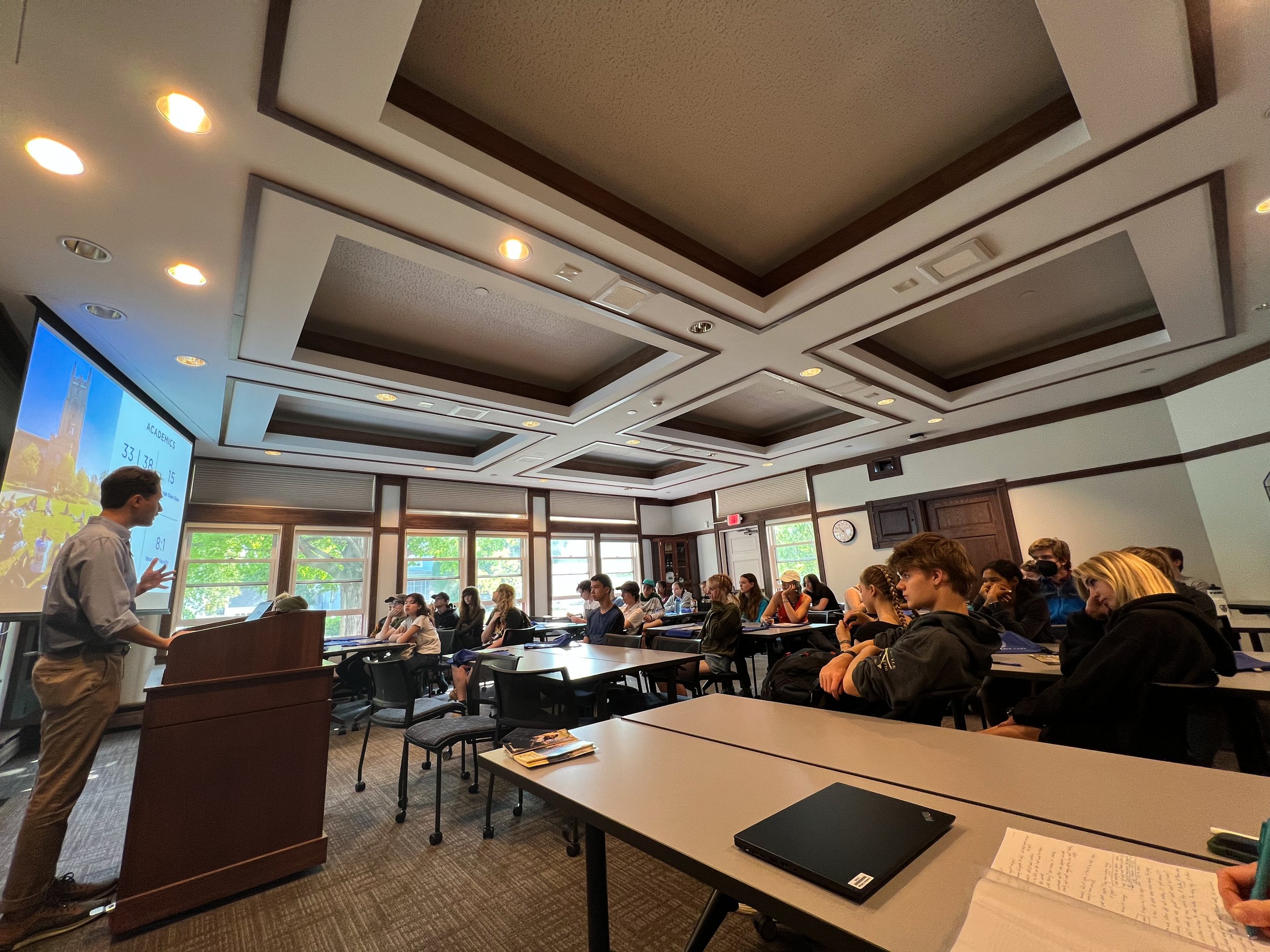




Thinking about future education choices, the Juniors explored colleges in Minnesota and Wisconsin, hitting UW-Superior, Northland College, UW-Stout, Carleton and St. Olaf. While the trip was only four days, it was an experience packed with a lot of activity, including the ropes course at UW-Stout. Look out world, our Juniors are ready for their future!
12th grade Canoe Key Experience





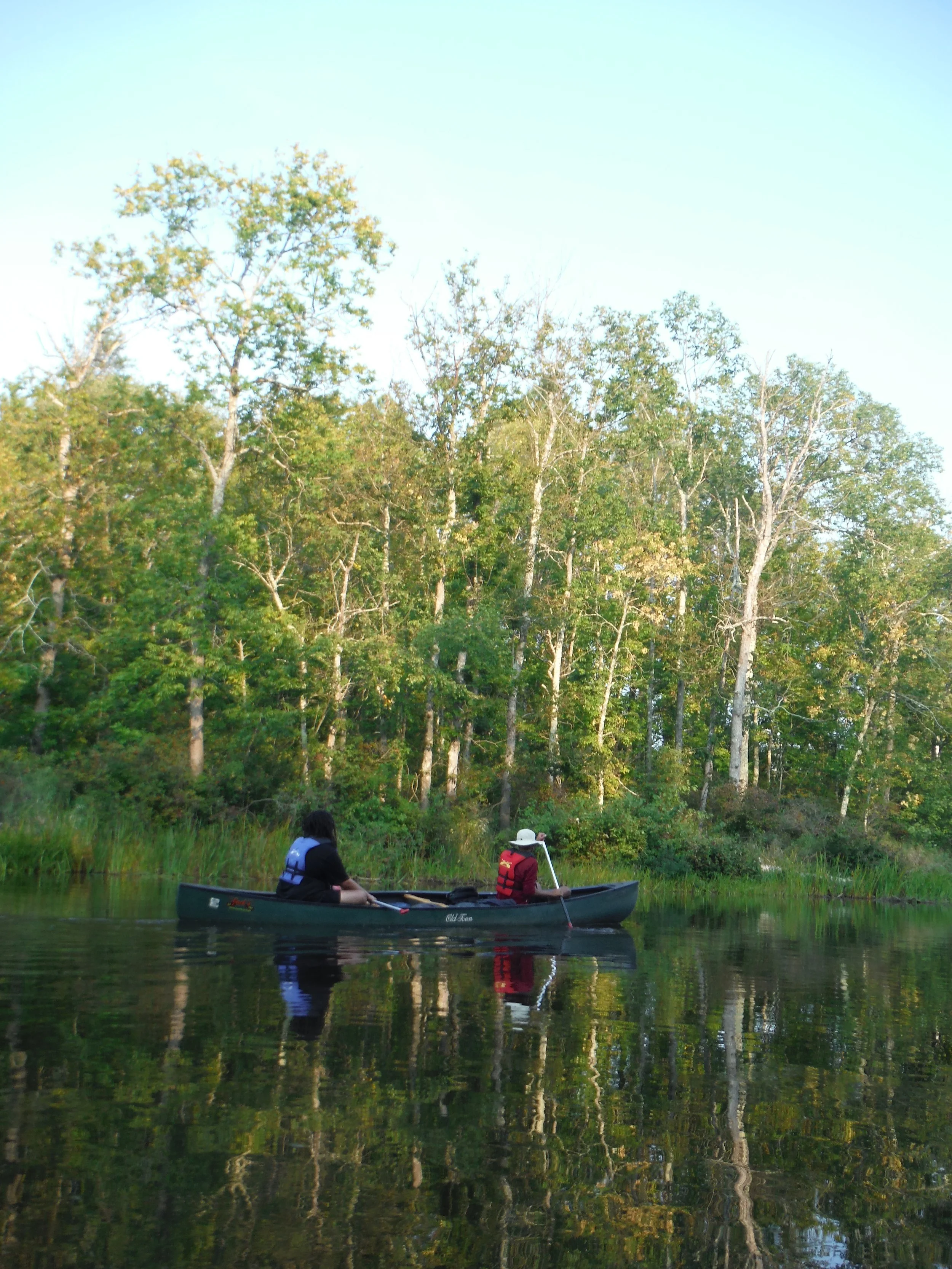


Embarking on their final Key Experience, the seniors took on the challenge of canoeing down the Namekagon River. The Namekagon River spans one hundred miles through a mostly forested and rural Wisconsin landscape. It features twists and turns stretches around small islands. The students battled currents and rapids, and even completed a 25 mile paddling day on the river. After that, any paper this year should be a cakewalk.
Upcoming Upper Adolescent Program Dates:
October 15, 2022 | Harvest Fest, 2 - 5pm
Upper Elementary: The Golden Triangle and Student-Led Conferences
Written by Crow Wing River Guide- Matty Brossart
“Education is a natural process carried out by the child and is not acquired by listening to words but by experiences in the environment.” – Maria Montessori
The Golden Triangle:
In Montessori education, at Great River School and around the world, we tend to have a deep love of Triangles. In history lessons we tell stories of the Greeks in Europe and Egyptians in Africa using triangles for incredible things. In language lessons, triangles help us understand and symbolize the relationships between nouns, pronouns, and adjectives. In our building and exploring we often discover the strength of the triangle in engineering. And, we have seemingly endless geometry materials dedicated solely to this amazing shape. With all of that love for the triangle, and all the places it comes up, the most important triangle of all is the golden triangle.
In Montessori philosophy we often talk of a “Golden Triangle” that represents the importance of the relationship between the school, the child, and caregivers. We know that when we work together we create a much stronger environment that supports each child to grow in their best way. You may hear people refer to this also as the “three legged stool of support”. Whatever one calls it, this golden triangle is central to our big work together at GRS.
Throughout the year we work hard to keep the child at the center of their education, while also working to make sure we maintain the relationship between school and home, and the child’s relationship with both as well. This sharing of experiences and connections helps build relationships, pride, and is equity work when we do it well. This purposeful connection of the child’s whole life with our shared work also helps tear down the false walls that make school the only place for “learning”.
Student-Led Conferences:
One of the most important tools that we use in Upper Elementary at Great River to strengthen and build the golden triangle is the student-led conference. These happen twice a year in the fall and spring. All upper elementary students participate in the work of preparing for both conferences each year. And they are expected to attend and lead every conference except their first one in year four. This first one is used as a chance for the caregivers and guides to get to know each other and connect. Then, every one after that first conference- they not only prepare for and also lead.
These conferences are foundational to our Montessori work. As in the quote above, these conferences are a chance to have the children doing their self construction rather than listening to others talk about their growth and work. Student-led conferences create opportunities for students to create connections, build executive function and reflecting skills. The process we help guide students through in their preparation also helps to build writing skills, speaking skills, agency and often pride!
In upper elementary, the students prepare for their conferences by looking through their work journals and portfolios. They are guided through a process to find things that they can share which they are proud of, and which they believe show their strengths (and sometimes struggles). They spend a majority of their conference preparation time and actual conference time sharing their work and thinking about their process.
This work is followed by students working to set Specific, Measurable, Achievable Relevant, and Timely (SMART) goals. The students think about their work, and their family, and their desires, and they set a goal or two and share their goals. The conference often wraps up with caregivers, students, and guides brainstorming ways everyone can work together to support those goals and follow up with them. During the conferences guides and caregivers ask questions about what the student is presenting, and we generally leave with a better understanding of ways we can all work together.
These conference days are long. And they are a lot of work to get ready for. And they are some of the best days of the year.
Caption: Crow Wing River Students practicing presenting their work, getting lessons, and asking for help- all activities they might reflect on in their conference preparation.
Conclusion:
It seems appropriate to wrap up with another Montessori quote: In the child is much knowledge, much wisdom. If we do not profit from it, it is only because of neglect on our part to become humble and to see the wonder of this soul and learn what the child can teach.” In upper elementary, throughout October we will be doing the work of building community, taking our key experiences (which we will write about in next month’s newsletter), and starting our shared academic journeys. We will also be preparing for our first conferences of the year- and we look forward to sharing this central tradition with you on November 3rd and 4th of this year.
October 2022 Head of School Message
written by David Núñez, Interim Head of School
Dear GRS Community,
Happy October everyone!
The school year is off and running and I’m excited to say that things are moving along smoothly despite a few hiccups. Our biggest challenge has been the complete lack of substitute teachers in the state of MN right now. If you know anyone who is interested, we are going to be running an orientation and training on being a substitute in an attempt to grow our own substitute staff.
Our biggest success so far this year has been the success of the fall Key Experiences, despite the fact that we hadn’t run them in years due to COVID-19. While there were challenges to the trips, the staff and students rose to those challenges and had some truly formative experiences. We are meeting to process how we can improve upon the trips for next time. Thank you all, students, staff and families, who helped to make these experiences come together.
You may have noticed that our MCA scores have been posted on the MN report card, alongside other schools in the state. Unfortunately, although similarly to all other schools in the state, our scores did drop last year. I want to assure you, no matter your thoughts on standardized testing, we are taking this drop in test scores seriously, and continue to focus on the health and wellbeing of our students. We know that students need to be in a good place socially and emotionally to succeed academically and so we are offering increased SEL support and increased academic support this year with COVID related funding. Individual student score reports are being addressed right now and should be mailed home in the next week or two.
If you didn't know it, the 15th of last month marked the beginning of National Hispanic Heritage Month. That means these weeks are a time to celebrate the vital role of Hispanic people in American history and highlight the accomplishments of people who identify as Hispanic. As I always say during the various celebratory months we have here in the US, of course we need to honor a diversity of voices at all times, but when we have a reason to celebrate, we take it!
Part of what I do throughout the year is share the resources I’ve collected with staff during celebratory months, and at a recent community meeting the students asked me to share those resources with them as well. So here goes:
Hispanic Folks you should know:
Here are 30 inspiring Latinx folks who have shaped our history as a country
Check out the work of local artist and activist Ricardo Levins Morales
“Si, se puede!” Think political and read about Dolores Huerta
Or maybe think pop-culture and consider the huge career of star Rita Moreno
Perhaps you are looking for a more academic bend, trying reading something by Gloria Anzaldúa
During a career that lasted more than 60 years, Celia Cruz, the Queen of Salsa, helped popularize salsa music in the United States by celebrating her Cuban culture.
Pura Belpré was the first Puerto Rican librarian in New York City – she was also a writer, collector of folktales, and puppeteer.
A veteran of the 1969 Stonewall uprising, Sylvia Rivera was a tireless advocate for those silenced or ignored by larger movements, fighting against the exclusion of transgender people, especially transgender people of color, from the larger movement for gay rights.
Doing your own work:
Is it Hispanic, Chicano/Chicana, Latino/Latina, or Latinx?
Embracing Diversity U.S. “What Makes a Latino, Hispanic, or Latinx?”
Huffington Post video on the definitions
Pew Research Center Study. “’Hispanic’ and ‘Latino’: When Labels Don’t Fit.”
As we reflect on how we educate hispanic children:
Look here to find a teacher's guide to National Hispanic Heritage Month.
Enjoy the resources and please let me know if you have any questions or suggestions.
Have a great Fall everyone!
Peace,
David
Heron's Nest Updates and Information
Heron’s Nest
Brr! It’s cold in here! It must be a Freezer Blast in the atmosphere! Mel and the rest of the kitchen crew will be selling frozen soups and lunches at the Harvest Fest on October 15th. Don’t forget to stop by at the event to bring a little taste of Great River to your own home.
Just a friendly reminder, don’t forget to pre-order lunches each week for your students. When you pre-order your student’s lunches, Mel and the staff in the Heron’s Nest Kitchen are better prepared, and are able to ensure the right amount of supplies are ordered. In addition, it helps the Heron’s Nest Crew know how many students will be having lunch on any given day.
Need breakfast in the morning? No problem! The Heron’s Nest also has Breakfast options available for students and faculty. Breakfast is available to pre-order on the School payment portal.
Check out the Quarter 1 menu Below:
Meet our Great River Staff: Saleha Erdmann
Saleha has been a social worker in Great River's elementary program for the past five years and is now the SEL Coordinator, or Social Emotional Coordinator. She is excited that in this new position she will work with all ages school-wide! Get to know Saleha!
Biography provided by Saleha Erdmann, SEL Coordinator
Throughout my career I've been a housing advocate for adults and unaccompanied youth, a bilingual therapist with Spanish speakers, and have worked in many different schools first as an outreach worker, then school-based therapist, and finally as a school social worker for the past seven years. Outside of work I love having dance parties with my kids, gardening, and being near or on the water.
SEL Work
I believe SEL work in schools should support young people in deepening their self-awareness, sense of empowerment, and ability to engage in discomfort and conflict in healthy ways. And any conversation about SEL must be intertwined with conversation around equity.
One reason I have loved being a school social worker at Great River over the past five years is that so much social-emotional learning is already embedded in Montessori practices and the culture of our particular school. The new SEL Coordinator role is intended to identify and build off of the practices and resources we already have in place. This will include continuing to develop the Wellness curriculum that we have been piloting in elementary over the past three years and expanding those lessons into the adolescent program, as well as integrating preexisting adolescent SEL lessons. We hope to eventually have a Wellness curriculum that connects the whole school and builds off of each stage of child and adolescent development.
In addition to working on our Wellness curriculum, I will be collaborating with the members of the leadership team to review our systems around communication, behavior response and crisis response through a trauma-informed lens.
If you see Saleha in the halls, stop to say hello!
Holly's Huddle October 2022
Written by Holly Bell, Director of First Impressions
WELCOME (BACK) to Great River School! I hope each of you had a wonderful and delightful summer, filled with lots of fresh air and activities. I feel very fortunate in that I got to see both of my “babies” in their homes in California and in Wisconsin. And, I’m so glad to see YOUR familiar faces back in school this year!
I wanted to talk about grace and courtesy. I was looking for some nice window sayings for my big window at work and I came across this very sweet picture that was labeled “grace and courtesy.” What does that mean to you? One google search I made told me this:
In short, grace is the child's ability to use their will to show comfort and respect in themselves. Courtesy is showing that same grace and respect toward others. Around the age of 3, up to 6 years, children become sensitive to social interactions with their peers and adults.(https://www.fishtownmontessori.com, June 21, 2022)
So then I started to think about all of the turmoil around us, in the world and in our city. And about adult role models who are not showing grace or courtesy to their fellow human beings. Why do we even have social norms of being kind and polite?
Next, I wondered about kindness. Have you ever heard of the Be Kind People project? Great River School strikes me as a school that would qualify to become a Be Kind School. Do you think we could (or should) do that? I haven’t studied the program enough to decide - it’ll take a little more research for me. What do you think?
Here is one of my favorite websites to go to when I’m feeling a little disjointed. (Under the “Kindness at School” section, you can print a kindness calendar.) I LOVE to look at this school calendar because it has so many brilliant ideas of things to do. You’ll see a copy of this month hanging on one of the windows in my space at the front desk.
I’m wishing for all of us, a school year filled with kindness, grace and courtesy for ourselves and, especially, for those around us.
On we go,
Holly
Preparing Thoughtful Spaces and Planning How We Work Together
written by Nadine McNiff, Rice Creek guide
As the school year begins, we reflect on how our beautiful spaces and time spent in learning how to work in community leads to the greatest support for children here at school. Maria Montessori explains what children need from adults; what indeed they might ask from us, “Help me help myself.” Fostering this independence is key and central to how we organize, plan, and use our school and classroom spaces. A prepared environment is one that considers carefully the needs and perspective of the child, and the goals for growth and independence we have for them. At school, this looks like wide hallways, plentiful light, a variety of outdoor spaces, a classroom with artwork and furniture at the child’s level, beautiful materials placed in a specific order on open shelves, objects that hold weight and require careful handling, and spaces that clearly define a child’s personal spaces and materials
Adults in a Montessori classroom also spend a great amount of time with children, defining how we will all work together. This includes discussions on what kind of school and classroom we want to come to each day, how we can do our own unique parts as adults and students, and finalizing this thinking and discussion into belief statements. Our classroom beliefs guide our work as a community, throughout the year, in peaceful times as well as times of conflict or differing opinions. We take time each week to acknowledge all the beauty we recognize in our work together and address when we are having difficulty in upholding our beliefs or failing to do our perspective jobs. Spending time preparing environments and agreeing on how we will work together is central to our healthy community. We know this type of investment and work is important in our student’s homes as well.
Preparing your home for independence takes some time, planning and thoughtfulness around the freedoms and responsibilities you understand are right for your child. Including children in the daily life of your home is one of the most important indicators of their success at school, and in life. This might look like rethinking your routines such that your child has time and space to get ready independently, giving your child special jobs or chores that are their responsibility, asking for their input and perspective in appropriate family decisions, and organizing their sleeping spaces and personal spaces sparsely, beautifully, and with a goal of independence in mind. Preparing our homes and including children in our family life fosters purposeful work, practical life skills, and builds self-reliance and discipline. Let them show you just how MUCH they can do.
Freedom and independence are vital, but we all know that there are some decisions and rules that are not appropriate for our children to make. It is our job as adults to set the limits and hold fair and firm boundaries. Moreover, although we often hear them protest these limits, we understand this consistent structure to be comforting and healthy for our children. It is worth considering what are those parts of your family life that children can make choices about, saying yes as often as is healthy and safe. This way, when we say no, and explain why we are making these decisions, they can trust (even if they don’t understand) that we are doing so, because this is our job as adults.
Finally, we understand that you are the holder of unique insight and knowledge about your child that allows you to make the best decisions about how to create opportunities for independence and healthy boundaries at home. We also know children are served best when schools and families do this in partnership.
June 2022 Head of School Message
written by David Núñez, Interim Head of School
Dear GRS Community,
I hope you are all having a happy end to your school year!
We have been just immersed in trips and trip planning in the adolescent program. Personally, I’m on the Lower Adolescent Bike Trip and, as a newish member of this community, it has been wonderful to see how these trips work. The organization and work that go into them is tremendous. The students are a key part in this preparation and they have been working so hard to make all the trips a reality.
Remember that we are having a last-day ceremony this year, as per usual. The details came out recently in an email, but on Friday, June 10th we will gather to show gratitude to each other and to start off the summer as a community. The students will line up in the playground area on the south side of campus to participate in this short event. Caregivers are welcome to come and observe the ceremony and pick up their students afterward.
Finally, I would like to thank you all for making me feel so welcome this year. It hasn’t been an easy year as we collectively attempt to recover from years of living in a pandemic. But the key word here is collectively. Together we have not just survived this school year, we have built new relationships, rebuilt old ones, we have learned and we have grown, truly we have had a good year together because we relied on each other.
I am looking forward to next school year together and the leadership team and I are already deep into planning for things to come.
Thank you again.
Peace,
David
Upper Adolescent June Update - Key Experiences, Trip Return Times, and Graduation Details
written by Adam Koehler, Interim UA Program Director
Key Experiences
By the time you’re reading this, UA students will have ventured on their spring key experiences. Key experiences have historically been a grounding moment to begin the school year. But like everyone else, we have had to adapt and change as we navigate the covid-19 pandemic.
As your student returns from their trip, you may notice some changes:
They may be more present. On each trip, we ask students to leave technology at home. Structured programming and down time offers students a chance to connect in authentic ways. Ask students how they feel about pausing with technology. Ask them how connected they feel to their peers, their guides, and their community.
Your student may be more helpful around the house. All students will help on the cooking and cleaning crews. Students will set up their own tents, take care of their possessions, and manage group gear. Ask your student how they feel about taking on community or household roles. Ask them how this could translate into their role at home.
These changes are not guaranteed, but the seeds will have been planted. Next year we hope these trips can be reinstated to occur at the beginning of the school year. To put these trips on after a long school year is a gargantuan task. Thank you to all the support you’ve offered, especially those who donated items or their time.
Trip Return times
Students return on Thursday June 9th at the following times:
12th return at 1pm
11th return at 2pm
10th return at 2pm
Senior Graduation
We will hold graduation at Hamline Methodist Church, on June 10th, at 6 pm. Graduates will need to be at the church promptly at 4:30 pm, located at 1514 Englewood Ave #1299, St Paul, MN.
Hamline Methodist Church has a rich history of not only being a sanctuary church but a welcoming space for the LGBTQ+ community, as well as different cultures & religions. Families will be able to bring up to 8 members and the space is wheelchair accessible.
After the ceremony, all graduates will gather on the lawn for photos, cake & the official cap/graduation announcement.
Thank you
This school year has been one of adaptation and transition. Thank you for entrusting us with your student. We hope you find some rest and relaxation this summer.
Best-
Adam Koehler
Interim Upper Adolescent Program Director
Last Day of School Ceremony Details - Caregivers Welcome
What: Great River’s last day of school annual ceremony!
An annual tradition to close the year together, thank each other for the work we’ve done, and enter summer collectively. After the ceremony, we’ll enjoy a school wide ice cream social for students and staff!
Interested in volunteering? Sign up here!
When: June 10th, 11am-11:45am
Where: Great River School South Playground
Who: all GRS students and faculty
Classroom and Grade Level Placement for Ceremony
Families will be allowed to attend and observe from the limestone rocks or the sidewalk between the garden and Limestone Cove.
Ice Cream Social Locations
7th-12th graders will depart the ceremony and use the sidewalk east of the school to get to the north lots where they will pick up ice cream and socialize. Trash bins will be located in all three spaces.
Guides will be able to bid adieu to their students as students get ice cream treats. Parent volunteers will be present to help hand out ice cream for elementary and lower adolescent. Upper Adolescent guides will distribute ice cream to UA students.
